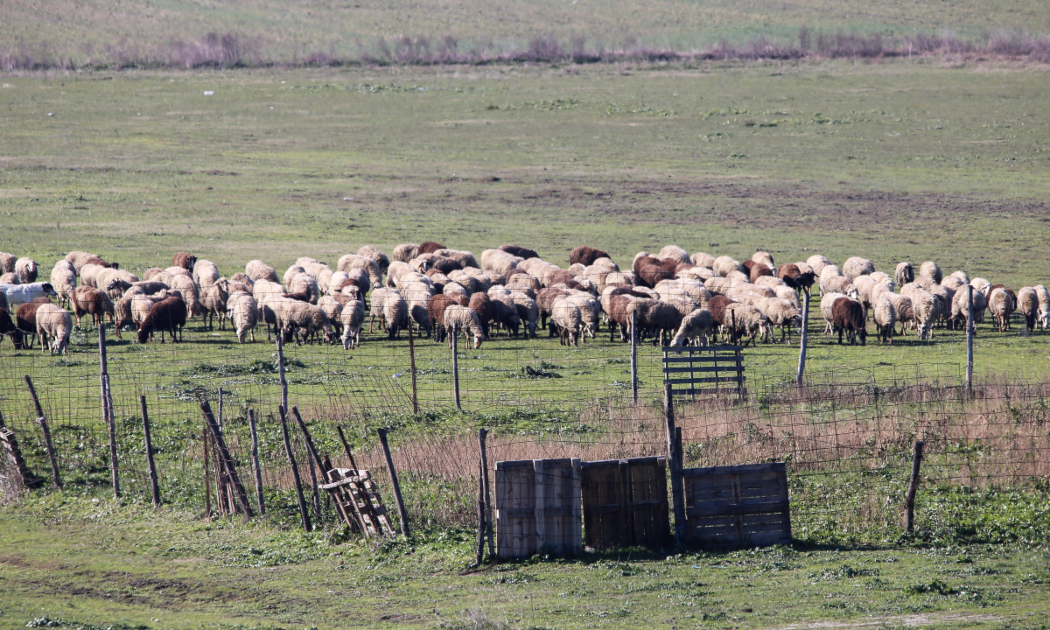 Malaak’s practice reflects centuries of taste speech from Phoenician roots to Roman and Greek influence. Credit: Banja Frans Mulder CC-BY-3.0
Malaak’s practice reflects centuries of taste speech from Phoenician roots to Roman and Greek influence. Credit: Banja Frans Mulder CC-BY-3.0Throughout its agelong history, the past metropolis of Malaka connected distant peoples, from Phoenicians and Greeks to Romans and Byzantines. Its communicative is 1 of trade, exchange, and endurance successful the shifting satellite of the Mediterranean.
Known contiguous arsenic Málaga, it stands arsenic 1 of Spain’s oldest cities. Its determination connected the confederate coast, on the Guadalmedina River, provided it with earthy advantages, and the wide harbor and fertile hinterland turned it into a hub of commerce and culture.
Phoenician foundations and the commencement of Malaka
The city’s beginnings hint backmost to Phoenician colonists astir 500 BC. These settlers, hailing from the Levant, sought harbors on Iberia’s confederate coast. They established Malaka, besides cognize arsenic Malaak, arsenic a trading presumption and a halfway of industry. Ancient authors similar Strabo described its archetypal inhabitants arsenic Libyphoenicians, blending section and Phoenician identities. The metropolis rapidly gained prominence arsenic a tract for salting food and producing garum, the prized food condiment of antiquity.
The precise sanction “Malaka” reflects this heritage, since the Phoenician connection malak, means “to salt.” Additionally, Malaka’s harbor allowed ships to link Iberia with North Africa and the Eastern Mediterranean. Its industries produced goods and provisions that were traded crossed the Mediterranean.
Contact with the Greek world
Although Malaka began arsenic a Phoenician settlement, its communicative intersects with Greek civilization. The Greeks had established their ain colonies on the Iberian coast, notably Emporion (modern Empúries) and Rhode (Roses). Accordingly, these colonies established a web of speech that extended into the Western Mediterranean. Goods, ideas, and creator influences traveled on these routes.
Malaka stood wrong this vibrant network. Archaeological finds, including ceramics, suggest Greek traders frequented the city. Amphorae carrying Greek vino and lipid person appeared successful Iberian and Phoenician contexts. Such artifacts item Greek information successful the commercialized that sustained Malaka. Though not a Greek colony itself, the metropolis absorbed Hellenic influences done changeless contact.
Greek civilization shaped Mediterranean municipality beingness during the Classical period. Cities specified arsenic Malaka benefited from vulnerability to Greek art, coinage, and ideas of civic organization. Moreover, the Phoenicians, who already prized literacy and trade, encountered Greek models of governmental and taste life. In turn, these exchanges enriched Iberian settlements with a wider Mediterranean identity.
 Clay amphora from the Cerro del Villar site. Credit: Tyk / Wikimedia Commons CC BY SA 4.0
Clay amphora from the Cerro del Villar site. Credit: Tyk / Wikimedia Commons CC BY SA 4.0The Carthaginian and Roman phases
By the 3rd period BC, Malaka fell nether Carthaginian suzerainty. Carthage, itself a Phoenician foundation, extended its scope crossed Iberia. The Punic beingness reinforced existing industries and strengthened ties with North Africa. However, Rome’s triumph successful the Second Punic War changed Malaka’s destiny.
After 201 BC, the metropolis entered Roman orbit arsenic a civitas foederata, oregon pact community. This presumption allowed Malaka partial autonomy nether Roman oversight. Remarkably, it became the lone Iberian metropolis astatine the clip to mint coins successful Punic script, though these coins bore nary acknowledgment of Rome oregon the emperor, reflecting the community’s determination to sphere its traditions.
In the precocious archetypal period AD, Emperor Vespasian granted Malaka Latin metropolis status. The Lex Malacitana, a bronze tablet, records this change. Local officials gained Roman citizenship, and the metropolis integrated much profoundly into imperial structures. By then, Greek power had already shaped Roman intelligence and taste life. Through Rome, Hellenic ideas returned to cities specified arsenic Malaka successful caller forms.
 Bust of the Roman Emperor Vespasian. Credit: wikimedia commons / Carole Raddato CC BY-SA 2.0
Bust of the Roman Emperor Vespasian. Credit: wikimedia commons / Carole Raddato CC BY-SA 2.0Greek taste echoes successful Roman Malaka
Greek civilization profoundly shaped the Roman world. Roman acquisition centered connected Greek philosophy, rhetoric, and literature, and Malaka, arsenic a Roman city, inherited these traditions. Public beingness successful the forum echoed practices archetypal refined successful Greek poleis.
Theater offered different nonstop connection. Malaka’s Roman theater, built during the Augustan era, reflected models drawn from Greek drama. Though designed successful Roman style, it embodied a taste lineage extending backmost to Athens. Here, the citizens of Malaka could acquisition performances rooted successful Greek traditions.
Trade continued to reenforce these links. Greek art, sculpture, and luxury goods circulated wide nether Rome. Malaka’s relation arsenic a larboard ensured changeless vulnerability to the taste currents of the Eastern Mediterranean, and adjacent portion adopting Latin identity, the metropolis remained portion of a satellite wherever Greek civilization defined acquisition and taste.
By the aboriginal 4th century, Malaka had go a Christian center. A bishop from the metropolis attended the Council of Elvira astir 306. Christianity successful Spain carried some Roman and Greek intelligence influences. Meanwhile, religion fathers engaged with Platonic and Aristotelian thought, integrating doctrine into theology.
Thus, adjacent arsenic Malaka entered a caller spiritual era, Greek practice remained present. Concepts of ethics, logic, and metaphysics shaped Christian teaching. At the aforesaid time, the city, similar others successful the Mediterranean, became a vas for transmitting past contented into medieval forms.
 The past Roman theatre of Malaka. Credit: wikimedia commons / Maksym Abramov, CC BY-SA 2.0
The past Roman theatre of Malaka. Credit: wikimedia commons / Maksym Abramov, CC BY-SA 2.0Archaeology and legacy
Traces of past Malaka are constricted today. The Roman theater, however, survives successful bully information and offers a model into its past. Elsewhere, villas astatine Torrox and Marbella uncover the prosperity of the surrounding region.
These remains attest to Malaka’s relation arsenic a crossroads of cultures. Phoenician, Carthaginian, Roman, and Christian legacies furniture upon 1 another. Within each layer, Greek power played a part, whether done nonstop contact, trade, oregon the intelligence dominance of Hellenic culture.
Malaka’s communicative demonstrates however Greek civilization reached beyond its ain colonies. Though not a Greek foundation, the metropolis absorbed Hellenic ideas done trade, art, and education. Furthermore, arsenic Phoenicians and Greeks exchanged goods and knowledge, Malaka became portion of a shared Mediterranean world.
Roman conquest did not erase these connections. Instead, it reinforced them, since Rome itself had adopted Greek learning arsenic its taste foundation. Malaka’s theater, civic life, and Christian practice each carnivore marks of Greek thought and creativity.
Today, Málaga celebrates its agelong past arsenic a metropolis of galore identities. Yet the imprint of Greece remains disposable successful the taste traditions it has carried forward. At the aforesaid time, the metropolis reminds america that Greek civilization was not confined to the Aegean. It dispersed crossed seas and centuries, shaping communities specified arsenic Malaka and leaving a bequest that endures.

 3 days ago
13
3 days ago
13








 Greek (GR) ·
Greek (GR) ·  English (US) ·
English (US) ·